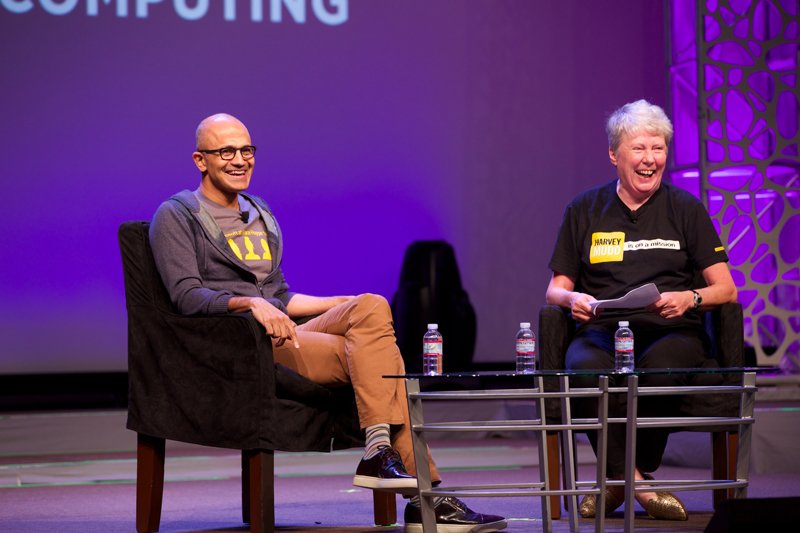Microsoft CEO Satya Nadella has apologized for a remark about women's pay which set off a storm on social media.
He put his foot in his mouth this week at the Grace Hopper Celebration of Women in Computing event in Phoenix on Thursday, when Microsoft board member and president of Harvey Mudd College Maria Klawe, asked what advice he would give women who don’t feel comfortable pressing their bosses for promotions or raises.
His response? Women should not ask for pay rises as it ‘isn’t good karma’ and should have faith in the system to give them the right raise.
Raising karma
The comments show how the representation and treatment of women in the technology industry has become a flash point for controversy. Following a social media backlash, Nadella took to Twitter where he seemed to back track on his choice of words.
“Was inarticulate re how women should ask for raise. Our industry must close gender pay gap so a raise is not needed because of a bias,” Nadella posted.
Nadella also sent an email to all of Microsoft’s employees after the onstage blooper apologizing for the way he answered the question.
“Without a doubt I wholeheartedly support programs at Microsoft and in the industry that bring more women into technology and close the pay gap. I believe men and women should get equal pay for equal work,” the email read.
Women and STEM careers
In 2011, only about a quarter of workers in STEM (science, technology, engineering and mathematics) fields were women.
Adaptive Computing's VP of marketing Jill King said unlike the right to vote, the gender imbalance in STEM jobs is not a black-and-white case of oppression.
King said gender stereotypes and the education system at large are significant factors contributing to the gender gap.
“I am optimistic for the future of women in these fields. The education system is dedicated to promoting STEM proficiency,” King said.
“Many of the largest technology companies are getting on board, such as Google’s US$50m commitment to Made with Code to expose girls to women who utilize coding in film, music and fashion. Certain STEM fields have less of a gender gap, and even more women than men in some cases”.

